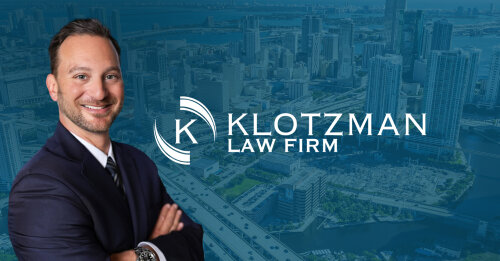Best Travel Accident Lawyers in New York
Share your needs with us, get contacted by law firms.
Free. Takes 2 min.
Or refine your search by selecting a city:
List of the best lawyers in New York, United States
About Travel Accident Law in New York, United States
Travel accident law in New York covers legal issues and rights related to injuries and accidents involving individuals traveling for business, leisure, or daily activities. These accidents can include incidents involving cars, buses, trains, taxis, bicycles, airplanes, ferries, and other modes of transportation. Travel accident claims can involve personal injury, property damage, insurance disputes, or negligence when someone is injured or affected while traveling within or through the state of New York.
Due to New York's status as a busy transportation hub, the law encompasses specific rules and regulations designed to protect residents, commuters, and tourists. If you have been injured in any sort of travel accident, understanding your legal rights and responsibilities is crucial.
Why You May Need a Lawyer
There are many situations in which individuals involved in a travel accident in New York may benefit from legal assistance. Common reasons include:
- Complex liability questions - such as determining who is at fault when multiple parties are involved
- Disputes with insurance companies over coverage, compensation, or exclusions
- Serious injuries that require compensation for medical bills, lost wages, or long-term care
- Accidents involving public transportation or government entities, which have special notice and claims requirements
- Accidents involving rideshares, taxis, or out-of-state vehicles with varying insurance policies
- Fatal accidents resulting in wrongful death claims
- Property damage claims related to travel incidents
- Uninsured or underinsured driver situations
A qualified attorney can help navigate complex legal processes, negotiate with insurers, gather evidence, and represent your interests in court or in settlement discussions.
Local Laws Overview
Travel accidents in New York are subject to a combination of state statutes, local regulations, and federal rules, especially if public transportation or interstate travel is involved. Key legal aspects to consider include:
- No-Fault Insurance: New York is a no-fault state for car accidents, meaning your own car insurance typically covers your injuries, regardless of fault, up to certain limits. However, severe injury cases may allow for lawsuits against responsible parties.
- Statute of Limitations: Generally, you have three years from the date of the accident to file a personal injury lawsuit, but exceptions exist (such as shorter periods for claims against municipalities).
- Comparative Fault Rule: New York follows a pure comparative negligence rule, meaning you can recover damages even if you are partly at fault, but your compensation is reduced by your percentage of fault.
- Public Transportation: Claims against entities like the MTA or Port Authority have special requirements, including filing a Notice of Claim within 90 days of the incident.
- Pedestrian and Bicycle Rights: Specific protections exist for non-motorized travelers, but contributory fault can also apply.
- Rideshare and Taxi Insurance: Different insurance requirements apply based on whether a vehicle is a rideshare, livery, or traditional taxi.
- Wrongful Death Claims: Separate procedures and limitation periods apply when a travel accident results in loss of life.
Understanding these rules can be challenging, especially when dealing with overlapping responsibilities or when multiple parties are involved.
Frequently Asked Questions
What should I do immediately after a travel accident in New York?
Seek medical attention, contact law enforcement if necessary, gather evidence such as photos and witness information, and report the incident to your insurance company. If applicable, notify the appropriate transportation authority.
Do I need to report a travel accident to the police?
You must report any accident involving injury, death, or significant property damage to the police in New York. For transit incidents, notify the relevant operator or authority.
Can I file a claim if I was partially at fault?
Yes, under New York’s comparative negligence rule, you can still recover damages even if you share responsibility. However, your compensation will be reduced according to your percentage of fault.
How do no-fault insurance laws affect my travel accident claim?
No-fault laws mean your own insurer covers your basic medical expenses and lost earnings, regardless of who caused the accident. For serious injuries, you may pursue additional damages from responsible parties.
What if I am injured on public transportation?
You may have a claim against the transportation authority. Special procedures apply, including filing a Notice of Claim within 90 days, before you can file a lawsuit.
Can I sue a rideshare company or taxi service?
You may be able to pursue damages from the company’s insurer or the driver, depending on the circumstances and the coverage in place at the time of the accident.
How long do I have to file a lawsuit after a travel accident?
Generally, the statute of limitations is three years for personal injury claims. However, claims against municipalities or government agencies may require action within 90 days and a lawsuit to be filed within one year and 90 days.
What types of compensation are available?
You may recover costs for medical bills, lost wages, pain and suffering, property damage, and other related expenses. In wrongful death cases, surviving family members may pursue additional damages.
What documentation do I need for my case?
Collect medical records, police reports, photographs, witness contact information, transportation tickets or receipts, correspondence with insurers, and any other relevant documents.
When should I contact a lawyer?
Contact a lawyer as soon as possible after an accident, especially if you have suffered serious injuries, if liability is disputed, if a government entity is involved, or if you encounter resistance from insurance companies.
Additional Resources
If you need more information or assistance, the following organizations and offices can be helpful:
- New York State Department of Motor Vehicles (DMV) - for crash reporting and insurance information
- Metropolitan Transportation Authority (MTA) - for incidents involving subways, buses, and trains
- New York State Department of Financial Services - for insurance-related questions
- New York City Taxi and Limousine Commission - for taxi, rideshare, and livery concerns
- Legal Aid Society and New York State Bar Association - for legal assistance and lawyer referrals
- Local police or precincts - for reporting accidents and obtaining incident reports
Next Steps
If you or a loved one has been involved in a travel accident in New York, your health and safety should always be your primary concern. Once medical needs are addressed, consider taking the following steps:
- Document as much information as possible regarding the incident
- Report the accident to all relevant authorities and your insurance company
- Contact a qualified attorney who specializes in travel accident or personal injury law
- Gather all documentation and evidence related to your accident and injury
- Consult with your lawyer about your legal rights, potential compensation, and the appropriate timeline for your claim
A legal professional can guide you through the process, protect your interests, and work to secure fair compensation. Taking informed and timely action is key to a successful outcome after a travel accident in New York.
Lawzana helps you find the best lawyers and law firms in New York through a curated and pre-screened list of qualified legal professionals. Our platform offers rankings and detailed profiles of attorneys and law firms, allowing you to compare based on practice areas, including Travel Accident, experience, and client feedback.
Each profile includes a description of the firm's areas of practice, client reviews, team members and partners, year of establishment, spoken languages, office locations, contact information, social media presence, and any published articles or resources. Most firms on our platform speak English and are experienced in both local and international legal matters.
Get a quote from top-rated law firms in New York, United States — quickly, securely, and without unnecessary hassle.
Disclaimer:
The information provided on this page is for general informational purposes only and does not constitute legal advice. While we strive to ensure the accuracy and relevance of the content, legal information may change over time, and interpretations of the law can vary. You should always consult with a qualified legal professional for advice specific to your situation.
We disclaim all liability for actions taken or not taken based on the content of this page. If you believe any information is incorrect or outdated, please contact us, and we will review and update it where appropriate.
Browse travel accident law firms by city in New York
Refine your search by selecting a city.

















